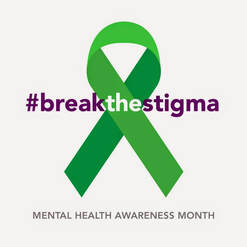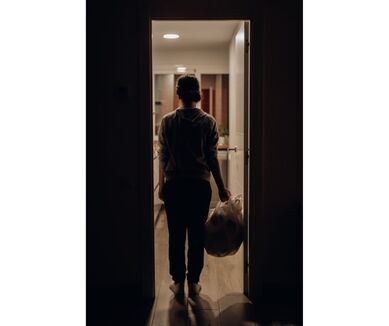 I’m starting to struggle with my depression, but it’s fine. Don’t worry. We’re all going through something. These words or variations thereof have been spoken by multiple Fellows over the past months. As the weight of 2020 and, still, 2021 bear down on them, they find that their mental health is increasingly challenged. We all do. However, they are also quick to dismiss their struggles, so often pointing to the fact that they are not alone in them. And it’s true. Even before the pandemic, an ever increasing number of children, young adults and adults reported mental health issues. The events of 2020 simply amplified them. Yet, it’s irresponsible to allow the prevalence and, in many ways, the normalizing of mental health to minimize the experience of an individual. Depression, anxiety or any other form/symptom of mental illness should be properly addressed, properly acknowledged - regardless of whether or not your neighbor and your neighbor’s neighbor are also struggling. May is Mental Health Awareness month. Let’s spend this time not only normalizing the fact that millions struggle with mental health but also normalizing the idea that everyone deserves help when needed.
17 Comments
 This past weekend, the nation celebrated the moms in our lives. We at the R.J. Leonard Foundation are honored to know a large number of wonderful mothers, including many of our amazing Fellows, Mentors, Board Members, staff and community partners. We were thrilled to celebrate them. However, in recognizing moms we must also remember to see them for who they truly are and who they have had to be this past year. The COVID-19 pandemic has weighed heavily on mothers and will continue to do so even as we navigate the hopeful end. It has stretched mothers to their limits in terms of time, exhaustion, stress and mental health. In short, moms are not okay. So, as the week after Mother’s Day stretches on and in the weeks that follow, we encourage you to reach out to the moms in your life, not with flowers and a card but with - in the words of said moms - your listening ears on. Ask them how they are, ask them how you can help, and ask them to be honest. We’ll be doing that at the Foundation, because without RJLF’s moms, whether they are Fellows, Mentors, Board Members, staff or community partners, we would be so much less.  Young people in foster care often have no choice but to pack their belongings in a few trash bags as they are moved from their parent/guardian’s home to a placement - or as they are moved from one placement to the next. This image of children lugging their clothes in large Hefty bags to temporary homes has spawned efforts by organizations and individuals to provide duffel bags full of necessities for those in care. However, having a bag more permanent than a trash bag is an answer for only the most visible problem. It is still a bag that a child must fill up when their time is up. Youth in foster care are forced to become accustomed to living in the temporary as opposed to the permanent. Few, particularly those who are teenagers, are adopted or find homes that they can remain in long-term. As a result, youth in foster care often only have enough belongings to fit into a bag - trash or duffel - and that habit of minimalism by necessity can stick with them into adulthood. May is National Foster Care Month. Let’s spend this month finding ways to help youth in foster care and the young adults who have aged out of the system put down roots, so that they can have the opportunity - and the stability - to fill more than a bag.  May 1 is National College Decision Day - the day when high school seniors throughout the country have to commit to a school for the fall semester. The decision is a challenging one, based not only on academics and cost but also on distance from home and from friends, environment, athletics and more. Seniors and their families have a lot to consider. Seniors without family support have even more to consider. Imagine a soon-to-be or newly 18 year old preparing to graduate this June. If they are also preparing to age out of the foster care system, they must weigh where they will be able to live, how they will get to class, how they will afford tuition and all that comes with it largely on their own. If they delay college, returning to school as an adult learner, the pressures of Decision Day and the years that follow become even more complicated. At the R.J. Leonard Foundation, we work to connect young adults aging out of the foster care system with mentors, as well as a network of support. We aim to give them the resources they need to help make huge choices a little less overwhelming and a lot more exciting, so that education and career are not just a dream but an attainable reality. |
Categories
All
Archives
July 2024
|
|
1097 Street Road
New Hope, PA 18938 |

 RSS Feed
RSS Feed
